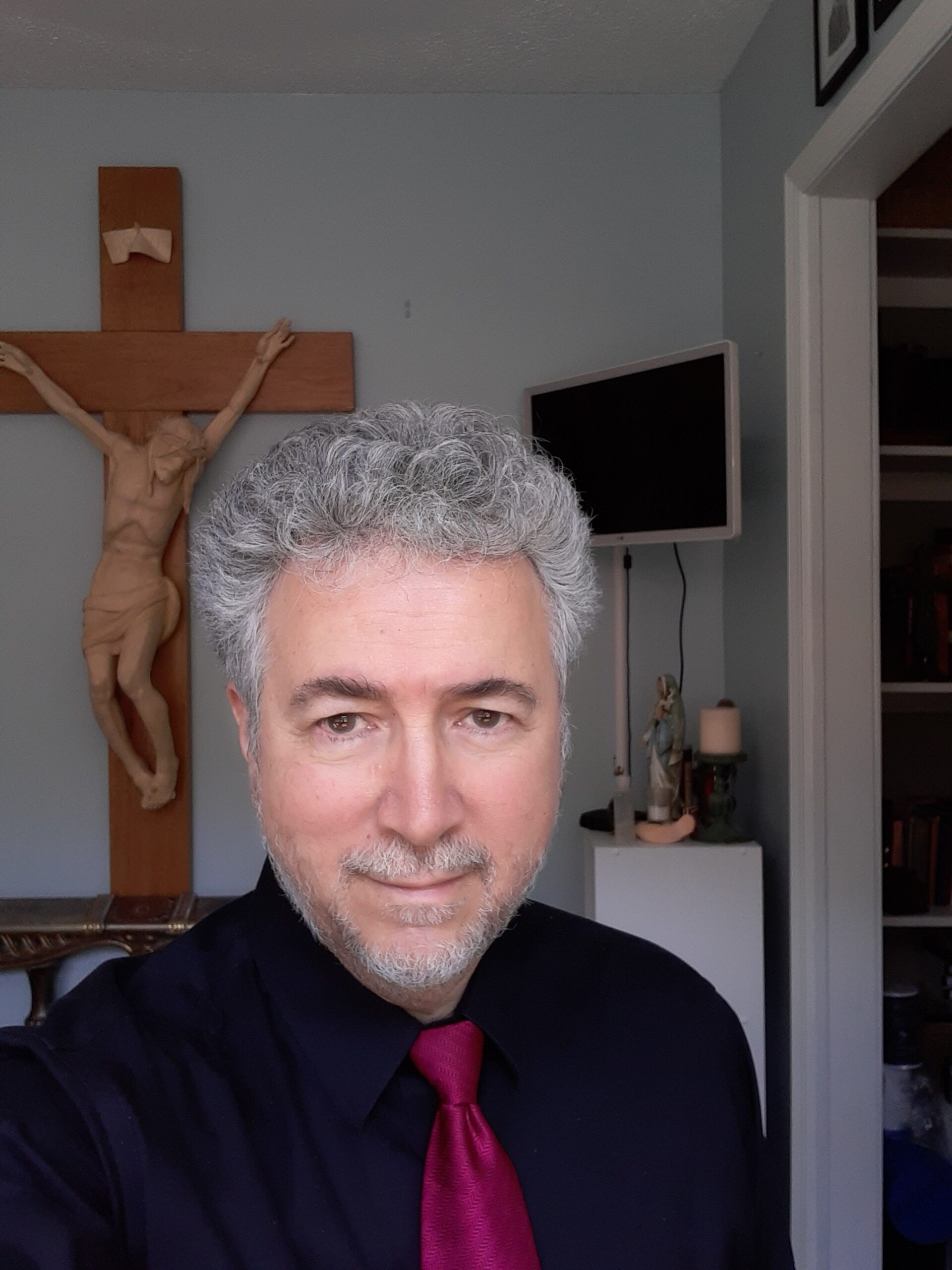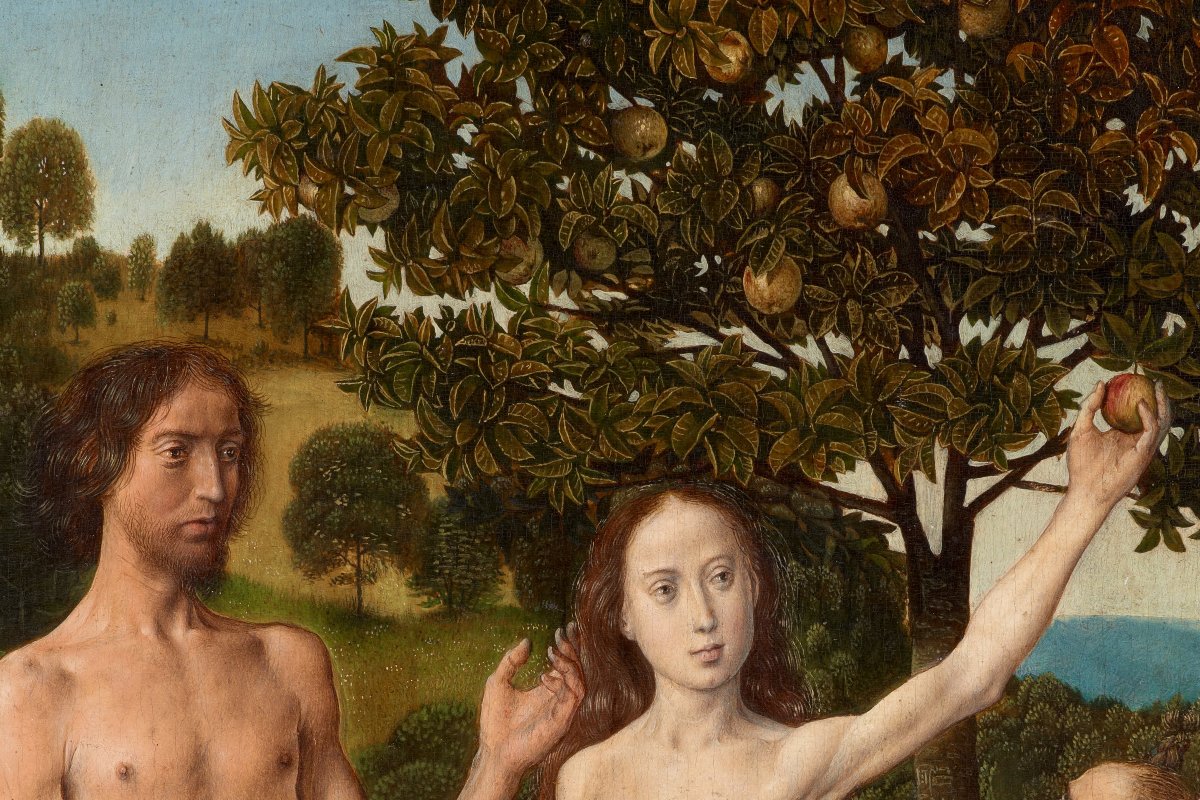Hello!
Welcome to PaulMurano.com
This site is dedicated to the millions of innocent people killed before birth each year by surgical and chemical abortion (including by abortifacient “contraceptives”). We deeply mourn their loss and profoundly suffer its consequences as a society.
A little about me: I am simply a curious truth seeker and always have been, embracing faith and following reason wherever it leads. There is nothing more important than to discover the truth and to conform one’s life to it. My aim here is to provide a forum to share thoughts, ideas, and reasoned discussion for people with adult minds and childlike hearts.
I have never shied away from asking the big questions of life, nor should you. What’s more important? For the past twenty-five years I have been discussing them as a college instructor of philosophy, ethics and theology, a radio and TV talk host, a newspaper columnist, a teacher of adult education and catechesis, a commentator and blogger on social media, and a public speaker.
Much of my work goes under the title and branding of ‘Beneath the Surface’ with Paul Murano. It is beneath the surface where we find that faith and reason meet, and that truth, life, and love are one.
While I appreciate mystery, I highly value clarity. As talk host Dennis Prager often says, “I prefer clarity to agreement.” It is ‘clear’ that I ‘agree’ with this. 
In my spare time I play guitar and sing oldies hits and originals as a solo act. Musically, I’ve been influenced by the simple and melodious rock/pop of the 1960’s and 70’s – the genre of the Beatles, the Monkees, James Taylor, Neil Diamond, Jim Croce, and the like.
With regard to formal education, I have a Ph.D. in philosophy, a master’s degree in philosophy, and one in theology, a certification in health care ethics from the National Catholic Bioethics Center; and an A.B.D. from a Ph.D. program in systematic theology.
E-mail me if you find yourself looking for a speaker to delve beneath the surface….. or a musician to remain above it.
Lastly, St. Edith Stein once mentioned that we can reach God through thinking as a form of prayer. Therefore, my fellow truth-seekers, let us prayerfully think together in this electronic medium where faith and reason meet.
Peace to you and your family,
Paul


Let’s look at the assumptions behind this article:
“Eve persuaded Adam to save himself at the expense of humanity (Gn 3:6). *Mary persuaded Jesus to begin the mission to sacrifice Himself for the sake of humanity (Jn 2:5).”*
Both statements rest on pure speculation. First, we don’t know *exactly* what Eve told Adam. We *can* surmise, however, that Eve repeated the satanic lie to Adam about becoming “like God.” The fact that Adam bought this lie shows that humanity, for whatever reason, has an innate tendency to disregard God. Scripture reinforces that assertion through such statements, “The heart is desperately wicked; who can know it?” “None is righteous, no, not one…no one does good, not even one.” In writing Romans, St. Paul (a former Pharisee of the Pharisees) quoted various Psalms to make the latter point.
Moreover, the idea that Mary “persuaded” Jesus to “begin the mission to sacrifice Himself for the sake of humanity” not only assumes a *lot* on both Mary’s and Jesus’ part. *It effectively gives Mary a greater role in the plan of salvation than Jesus.* How? First, it assumes that Jesus *needed* human persuading to begin His mission. Throughout John’s Gospel, Jesus was well aware of divine timing and didn’t need outside input, even from His mother (study that gospel for yourselves). Second, the conventional Catholic interpretation of John 2 renders Jesus as nothing more than a “mama’s boy,” though He was a 30-year-old man who was the de facto head of His household after His earthly father’s death, according to the custom of that society (and, indeed, many societies today, such as in India). It was in that latter capacity that Mary asked Him to intercede. IOW, instead of Mary “persuading” Jesus to “begin the mission,” *she actually was submitting herself to His authority as the de facto head of her household.* Otherwise, the phrase “Do whatever He tells you” has no meaning. Otherwise, she would have gone to the stewards herself.
The miracle at Cana might have been Jesus’ first miracle but He didn’t begin his earthly ministry until after his baptism by John and his 40 days of temptation in the desert. The whole point of the passage is to highlight Jesus’ role, not Mary’s, and His divine connection through transforming water into wine (Only somebody who created the universe, as He did, could perform such a miracle).
Then there’s this:
“If Adam had not sinned, he would be celebrated throughout history for saving humanity from suffering and death; and Eve venerated for her influence and assistance to him in the matter.”
Even if Adam and Eve hadn’t sinned, somebody else would have (and did). Look at the condition of the human race that resulted in the flood. Look at Noah’s family. God considered all eight members as the only righteous people on earth when the flood occurred. Yet when Noah became drunk, Ham gossiped to his brothers about him. More importantly, Nimrod (one of Noah’s great-grandsons) behaved more like a totalitarian potentate than a devout man of God.
Finally, there’s this:
“In the order of grace, Jesus and Mary are the new Adam and Eve who, sharing a similar masculine-feminine dynamic, came to fix what man’s original parents had broken.”
First, while St. Paul writes extensively about Jesus being a “new Adam,” neither he nor any of the other NT authors talk about Mary being a “new Eve,” so it should be obvious that the people who were closest to Jesus never made that connection. More importantly, the only way Jesus and Mary could share a similar dynamic was to be married to each other. So the analogy breaks down on that latter basis alone.
Of course the original post includes speculation; much of which came from the Church fathers. That’s how the Spirit works; He moves the minds and hearts of His Church to a fuller understanding of Revelation.
You comments are based on two presumptive methods of discernment not shared by two millennia of Church doctrine: Cartesian reductionism and protestant sola scriptura. It’s easy to miss the point by utilizing these approaches.
The original post is presented as an interesting assessment for consideration rather than something that is proven with airtight scientific precision.
“Of course the original post includes speculation; much of which came from the Church fathers. That’s how the Spirit works; He moves the minds and hearts of His Church to a fuller understanding of Revelation.”
At what point, then, does revelation close? Or is it entirely open-ended? And if it’s the latter, then should it contradict previous revelation? If it does, then isn’t the Holy Spirit somehow to blame for that?
If Tradition is to be considered an equal with Scripture as a means of divine revelation, they need to complement, not contradict each other.
Regarding “sola scriptura,” Jesus Himself alluded to it (though not by that exact name) when He chastised the Pharisees for such an emphasis on their own traditions that they “make void” the “word of God” (Mark 7: 1-3) and the Sadducees for not “knowing the Scriptures nor the power of God.” (Matthew 22:23-32).
Jesus was rebuking the Pharisees and Sadducees for theological free-lancing and speculation that detracted from the divine revelation found in Scripture. So, yes, Jesus did emphasize “sola scriptura,” in a manner of speaking.
I also notice that you didn’t address the actual positions I mentioned. You merely disregarded them because they represented, in your mind, as theological paradigm with which you disagree. That’s the same kind of garbage “woke” university professors use to dismiss conservative rebuttals. Do better.
Joseph, to your questions:
1. Public Revelation closed with the death of the apostles. The development of doctrine is the development of our understanding of divine Revelation; it’s not new Revelation. Again, Christ’s Spirit in the Church enables His body to understand more deeply the truths of divine Revelation. Our (limited) understanding of it should be an organic growth, never a contradiction. When a teaching seems to contradict past authoritative declarations of the faith, the living Magisterium that Christ established to interpret His word authentically clarifies the dispute. It’s like having an infallible Supreme Court when disputes on the Constitution (i.e. divine Revelation) must be settled. Yet, still, this is utilized rarely.
2. There’s a difference between man-made traditions and Sacred Tradition (2 Thes 2:15), the latter being one of the two sacred fonts of Revelation (Lumen Gentium, Vat. II). Interestingly, Jesus criticized the Pharasees not only for making people practice things they don’t do themselves, but for upholding things in Scripture. Jesus came to clarify the meaning of the law over just the letter of the law, for which certain Pharasees and others tried to upend Jesus — how to keep holy the Sabbath day, forbidding divorce to BOTH men and women, etc. Jesus never stops clarifying God’s word; and much of this patrimony of understanding (i.e. deposit of faith) is found within sacred Tradition, which, of course, can never contradict Scripture. So, there’s an important distinction to be made between theological opinion, divine Revelation, and Church positive law. The Spirit in time and through the Magisterium makes clear theological opinion that is optional to believe vs. Church dogma which is necessary. Church (positive) law is changeable by its nature, but is obligatory for as long as it’s in force.
3. Your last paragraph is one reason it’s not always clear whether to take your questioning as being in good faith. Don’t assume and accuse. If someone is very busy and doesn’t get to things, do your own research. Catholic Answers (www.catholic.com) is a good resource to start with.